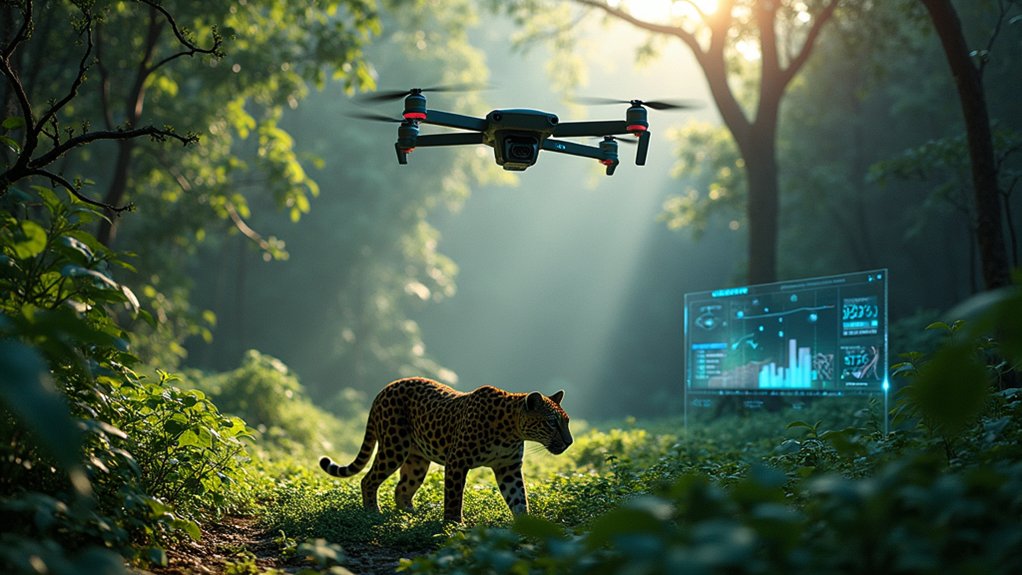As artificial intelligence continues its relentless march across the global economy, industries from healthcare to retail are experiencing unprecedented transformation. The numbers are staggering. AI’s projected contribution to the global economy? A whopping $15.7 trillion by 2030. Business productivity is expected to jump 40%. No wonder 72% of organizations have already jumped on the AI bandwagon.
Wildlife conservation, once reliant on painstaking manual observation, now leverages AI to monitor species populations in a fraction of the time. Identifying animals through images, audio calls, tracks, and even environmental DNA? AI does it all. It’s predicting human-wildlife conflicts and poaching threats before they happen. Recent habitat monitoring innovations incorporate AI-equipped drones to enhance protection of endangered species. Pretty neat trick for saving endangered species.
From manual tracking to AI detection, wildlife conservation now spots poaching threats before they materialize—saving endangered species with digital precision.
The energy sector isn’t being left behind. AI’s improving grid stability through better forecasting. Solar and wind energy? More predictable thanks to AI algorithms. Maintenance issues at power plants? Spotted before they cause problems. Energy trading is faster and smarter. Automation is taking over everything from data analysis to grid operations.
Beauty and skincare companies are getting eerily personal with AI. Take a selfie, get a detailed skin analysis. Companies like L’Oréal and Neutrogena are serving up hyper-personalized product recommendations while virtual try-ons let you test cosmetics without touching your face. This market’s exploding from $3.2 billion to $7.8 billion in just five years.
Manufacturing is where the real money is. AI’s finding defects with 90% accuracy, predicting when machines will break, and optimizing supply chains. Robots and humans are working side by side. The projected gain? $3.8 trillion by 2035.
Healthcare’s seeing AI diagnose diseases with impressive accuracy while developing personalized treatment plans based on genetics. It’s handling administrative busywork, speeding up drug discovery, and powering virtual triage systems. Experts emphasize the importance of establishing rigorous validation protocols to ensure AI-generated medical information remains scientifically accurate.
Meanwhile, retail executives are rushing to implement AI by 2025, knowing it’ll revolutionize everything from shopping experiences to fraud prevention. The AI revolution isn’t coming. It’s here.

